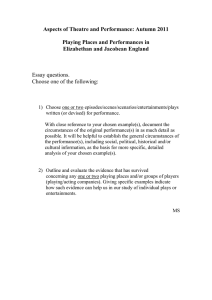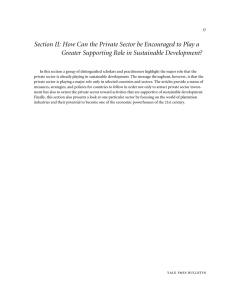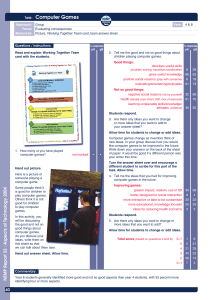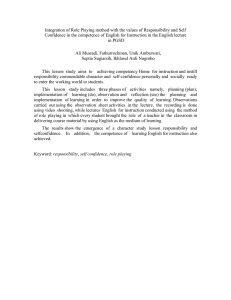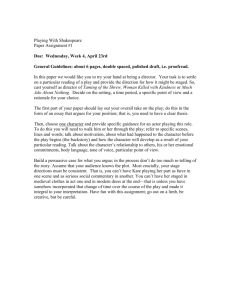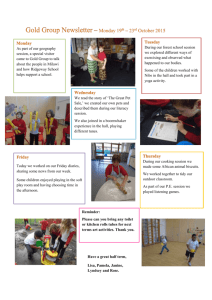Teaching Preschoolers FCS Majors
advertisement
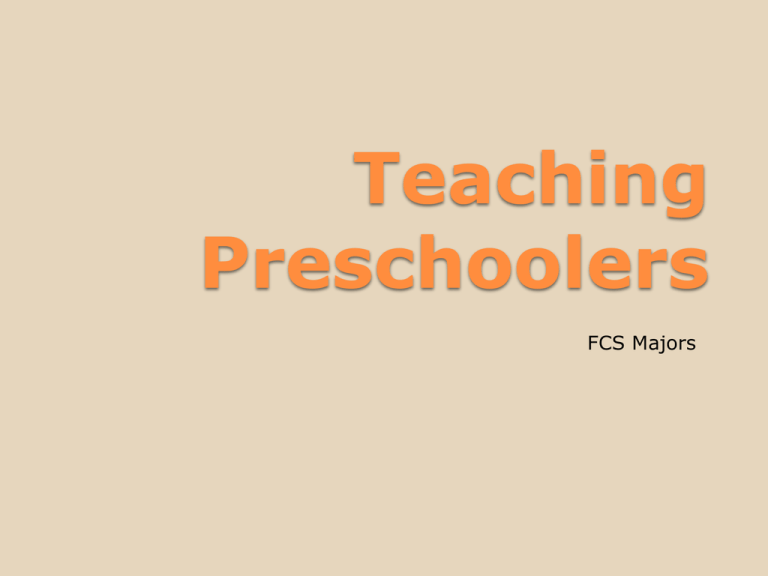
Teaching Preschoolers FCS Majors Build a Portfolio: Step 1: Before you do anything… Know Your Audience! Children of different ages require different needs. Physical Development • • • • • • • Run Jump Hop Throws ball overhead Catches a bounced ball Walks on a balance beam Balances when standing on one foot • Uses their fingers to pinch an object to pick it up • Makes pictures and shapes • Uses scissors and glue • Stacks small objects in a tower • Can button and unbutton Intellectual Development Intellectual = Cognitive Recognizes and matches colors Stacks blocks according to size Groups objects Counts to 10 Recalls 3 hidden objects from memory Emotional Development Emotional Development Knows body parts • Knows name, age etc. • Gives emotions to inanimate objects • Has imaginary friends • Has basic fears • Expresses anger with words rather than acting out physically. • Social Development Engages with peers and adults for an extended amount of time Is starting to notice other people’s moods and feelings. Understands that family’s culture may be different from others Shares with others What is the best way children learn? work An adult’s job is to ___________________ study A teenager’s job is to _________________ play A child’s job is to _____________________ Play enhances development: With your neighbor, spend 5 minutes and list as many reasons why you believe PLAY is important to the development of a young child. Be specific! Think: What What What What does play allow a child to do? can play DO to a child? can play help a child overcome? can playing TEACH a child? Play enhances development because it: Improves dexterity (fine motor abilities) Teaches kids how to work in groups, to share, negotiate, solve conflicts and to stand up for themselves Types of Play: Solitary Play: Plays alone. (ex: playing with a rattle) Parallel Play: Plays alongside, not with, another child. (ex. One child plays with a car sitting next to a child playing with blocks) Cooperative Play: Interacts while playing with other children. (ex. Playing tag) Constructive Play: play with materials that can create. (ex. Playing with building blocks) Dramatic Play: imaginative play that usually involves more than one child, for instance, playing house or doctor Planning for Preschool Step 2: Plan, Research, and Describe. Theme •Come up with a unit theme to hold all of your lesson ideas together. •Make sure your ideas teach the children physical, intellectual, emotional and social skills as well as can be safe. Examples of themes? Examples of Activities Literacy Math Science Multi-cultural Fine motor Gross Motor Art Music and Movement Computers Research: The internet as well as preschool teacher books have many activity ideas, how to prepare for and how to perform the activities. Describe: Write the directions as if someone who has never heard of the activity has to do it. Lesson Plan Outline Over all theme or big idea: Title of your book: Provide 3 questions you will ask while reading the book: a. b. c. Objective for activity: The students will… Materials: Step by Step Directions: What curriculum area does your lesson fall under? • • • • • Bonding: Oral Language: Opens New Worlds: Kindergarten Readiness: Smart: Reading to children is an essential skill to build a love of learning and books. In class and at home we will be working on writing our very own children’s book. Plan a book that supports your thematic unit. What is your favorite preschool book? GO! TEACH!
